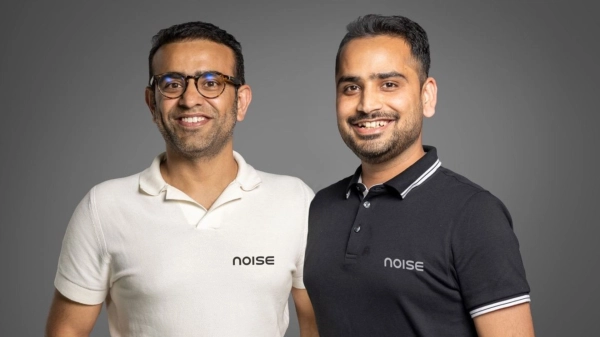Disruptive Digital Innovation: Dr Mashelkar's Prescription for Transforming India's Healthcare Landscape

Dr Mashelkar emphasized the unique capability of Indian innovation, which he termed "Indovation," to deliver high-quality results at significantly lower costs.
The DHN Forum Mumbai hosted by Digital Health News at Taj Land’s End, Bandra witnessed an impactful keynote presentation by Dr Raghunath Mashelkar, president of the Global Research Alliance and a three-time Padma awardee.
His presentation, titled "Transforming Healthcare through Disruptive Digital Innovation," provided deep insights into the evolution and future of digital healthcare, emphasizing the role of Indian innovation.
Dr Mashelkar began by reflecting on the rapid transformation within the digital space, noting, "Digitalization, decentralization, decarbonization, that's what's driving the world today."
He highlighted the contrast between past and present discussions around digital technology, mentioning how the term 'digital' was notably absent from major reports on regulatory reforms and intellectual property rights in the early 2000s.
Dr Raghunath Mashelkar, President, Global Research Alliance and Three times Padma Awardee at DHN Forum Mumbai 2024 at Taj land's end, Bandra.
Disrupting “Indovation” in Healthcare
Dr Mashelkar emphasized the unique capability of Indian innovation, which he termed "Indovation," to deliver high-quality results at significantly lower costs.
Citing the Mangalyaan Mars Orbiter Mission as an example, he illustrated how Indian solutions are often achieved at a fraction of the cost compared to global counterparts, underscoring the principle of "affordable excellence."
A key theme in Dr Mashelkar's address was the duality of India's development: the disparity between urban 'India' and rural 'Bharat.'
He stressed the necessity of inclusive innovation that addresses the needs of both segments. "We celebrate India at 75, but what about Bharat at 75? The inequalities are exponentially rising," he remarked.
He outlined seven critical tenets for building disruptive digital innovations in healthcare:
- Affordability and Accessibility: Ensuring solutions are cost-effective and reachable, particularly for rural populations.
- Scalability: Innovations must be scalable to have a significant impact.
- Sustainability: Long-term viability of healthcare solutions is crucial.
- Data Privacy and Security: Protecting patient information in the digital age.
- Interoperability: Ensuring different systems can work together seamlessly.
- Confidentiality: Maintaining patient trust through secure data practices.
- Trust: Establishing and maintaining trust in digital healthcare solutions.
Dr Raghunath Mashelkar, President, Global Research Alliance and Three times Padma Awardee at DHN Forum Mumbai 2024 at Taj land's end, Bandra.
Digital Equality Despite Income Inequality
Dr Mashelkar discussed the importance of digital access equality despite income inequality, highlighting Reliance Jio's success in democratizing internet access in India.
He shared anecdotes from his experience with the Reliance Innovation Council, emphasizing the necessity of disruptive, rather than incremental, innovation for exponential growth.
The Anjani Mashelkar Inclusive Innovation Award, named after his mother, showcases grassroots innovations that address these principles.
Dr Mashelkar shared examples of awardees who have created affordable, scalable healthcare technologies
For example, Intelligent Health Risk Assessment (IHRA) is an AI-driven thermal camera system providing real-time, non-invasive risk assessments for metabolic conditions at just five rupees per test.
Similarly, Shwasa is an AI platform analyzing cough sounds to assess respiratory health, offering a cost-effective alternative to traditional spirometers.
Senthil Murugasen and Dinesh Pandian developed a Remote Pregnancy Monitoring tool- An IoT sensor-based system tracking 35 parameters in pregnant women, significantly improving early risk detection.
Dr Raghunath Mashelkar, President, Global Research Alliance and Three times Padma Awardee at DHN Forum Mumbai 2024 at Taj land's end, Bandra.
From Next Practice to Best Practice
Dr Mashelkar also criticized the tendency to simply copy existing technologies ("best practices"). He passionately advocated for "next-practice" solutions – innovations that are specifically designed to address the unique challenges of India's healthcare system.
These solutions, he argued, must be demonstrably more affordable, user-friendly, and effective than their predecessors.
“I'm not very fond of best practice, because you're copying somebody's best practice. I believe in next practice, which should become the best practice for others,” Dr Mashelkar explained.
Dr Mashelkar praised the Indian government's digital health initiatives, including the Ayushman Bharat Digital Mission and the National Digital Health Blueprint, which aim to support universal healthcare through interoperable, secure digital systems.
“This is what we need to do now, creating that unified, united health interface, and how we can create apps by which we can sort of move forward. In the same way as we did in the financial, can we do it in the health? That should be the dream,” he said.
Dr Raghunath Mashelkar, President, Global Research Alliance and Three times Padma Awardee at DHN Forum Mumbai 2024 at Taj land's end, Bandra.
Leapfrogging to Pole Vaulting
In closing, Dr Mashelkar called for a shift from following global leaders to becoming global leaders, advocating for India to not just leapfrog but "pole vault" in its technological advancements.
Quoting late General Bipin Rawat, he said that "the time has come to move from leapfrogging to pole vaulting."
Conclusion
Dr Mashelkar's keynote underscored the transformative potential of digital innovation in healthcare.
The Digital Health News Forum in Mumbai concluded with a powerful message: through inclusive, scalable, and deeply scientific innovation, India can bridge the gap between "India" and "Bharat," ensuring that the benefits of digital healthcare reach all corners of the nation.
Stay tuned for more such updates on Digital Health News


















